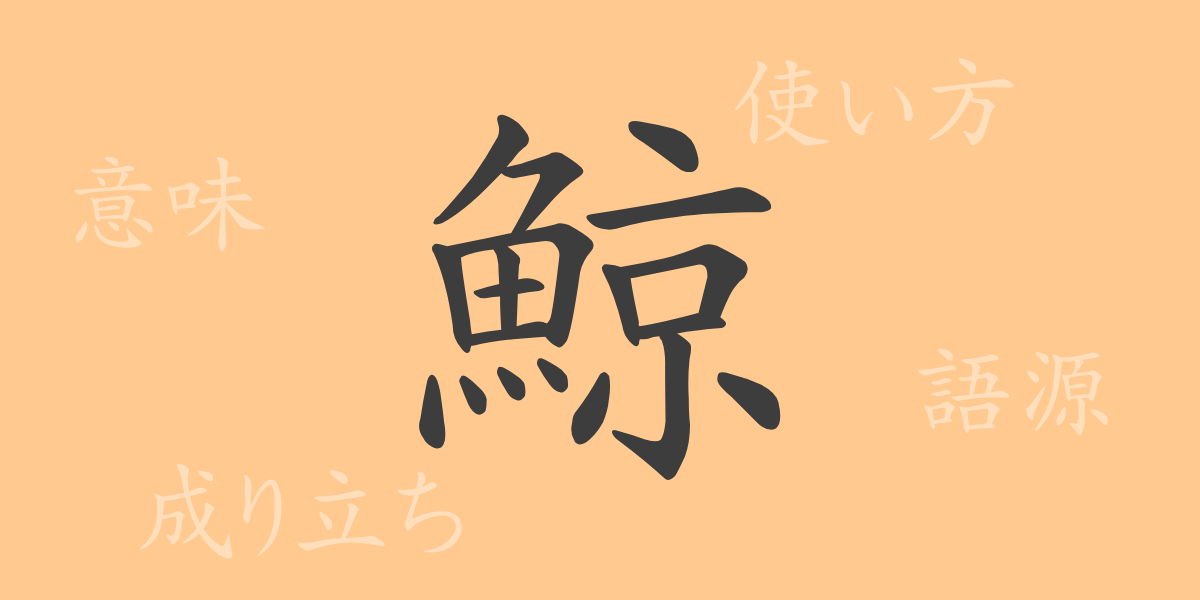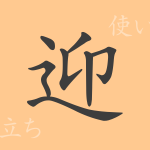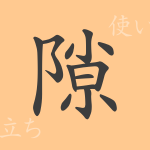The giant of the sea, the whale. Its presence has influenced many cultures throughout history, and in Japan, it has been regarded as an especially important being. This article sheds light on this colossal marine creature, delving deeply into the history and meaning behind the kanji “鯨(くじら, kujira),” as well as its readings and related idioms.
Origin of 鯨(くじら, kujira) (Etymology)
The origin of the kanji “鯨(くじら, kujira)” dates back to ancient China. The old character combines the radical for “fish” (魚) with “京,” a character symbolizing greatness and strength. This combination gave rise to the image of “鯨(くじら, kujira)” as a gigantic creature ruling the vast oceans.
Meaning and Use of 鯨(くじら, kujira)
The kanji “鯨(くじら, kujira)” refers to whales. Broadly, it can denote all cetaceans, including whales, dolphins, and porpoises. The usage of this kanji spans beyond biological contexts, appearing in figurative expressions and idioms to symbolize immense size and strength.
Readings, Stroke Count, and Radical of 鯨(くじら, kujira)
The kanji “鯨(くじら, kujira)” has specific readings and structure.
- Readings: The on’yomi (Chinese reading) is “ケイ(kei),” and the kun’yomi (Japanese reading) is “いさな(isana)” or “くじら(kujira).”
- Stroke count: “鯨(くじら, kujira)” has a total of 19 strokes.
- Radical: The radical is “魚部(うおぶ, uobu),” which is related to fish.
Idioms, Expressions, and Proverbs Using 鯨(くじら, kujira)
Idioms and expressions containing “鯨(くじら, kujira)” vividly reflect its size and characteristics.
- 鯨飲馬食 (げいいんばしょく, geiinbashoku): Consuming large amounts of food and drink, or spending extravagantly on eating and drinking.
- 鯨呑 (げいどん, geidon): Swallowing things whole, symbolizing massive consumption or overwhelming others.
- 鯨の一滴 (くじらのいってき, kujira no itteki): Like a drop of water in the vast ocean, representing an insignificant part of a much larger whole.
Conclusion on 鯨(くじら, kujira)
The kanji “鯨(くじら, kujira)” encompasses more than just a character; it carries a wealth of meaning. The image of the whale as the giant of the sea, embedded in this character’s history and cultural significance, is deeply rooted in our language and thoughts. From its ecological importance to its role as a symbol of environmental conservation, “鯨(くじら, kujira)” reminds us of the greatness of nature and the value of the life within it. Through this kanji, we can reappreciate the grandeur of the natural world and the preciousness of its inhabitants.

























